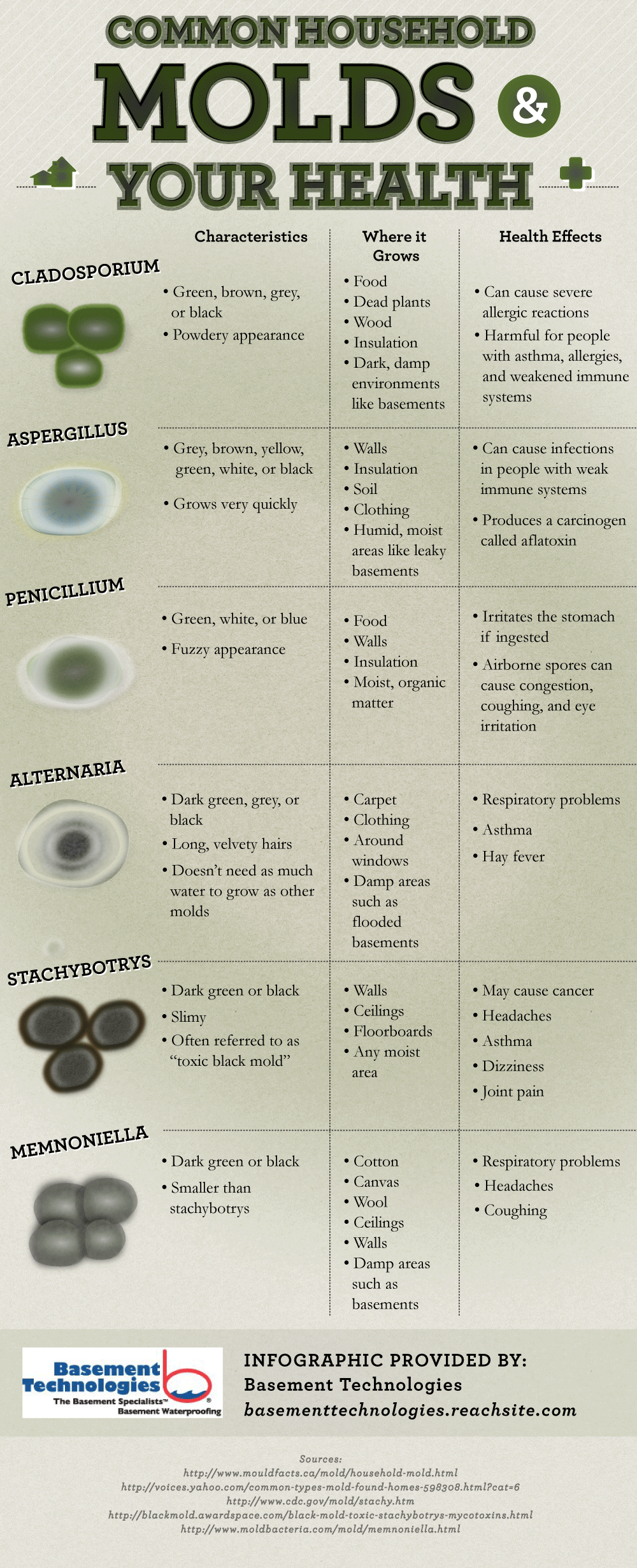Why Does My Basement Smell Bad?
If you’ve started to notice a musty smell in your basement, you may have mold in your home.
Musty odors are sometimes described as earthy and urine like.
Basements have the potential to be dark and damp places.
Add water and moisture to this equation and you have the perfect conditions for mold growth.
The odour you smell is most likely caused by the mold excreting mycotoxins.
Molds will release spores in the air as a defense mechanism to find more moisture and food, contributing to further mold growth.
If you do have mold growth, the key is to contact Mold B Gone to investigate the situation.
Mold B Gone has been serving Atlanta, Georgia area consumers and business owners since 2009.
Over the years, we have removed mold from many crawl spaces. In addition to crawl space mold removal, the other area of a home that we specialize in is the basement. This is one of the core reasons we offer our basement finishing service.
This article provides you with ten tips to prevent mold in your basement.
Implement these tips to avoid future headaches and costly mold removal in the future.
Top 6 Mold Species You Will Find In Your Basement!
The infograpnhic below lists the top 6 mold species that could be growing in your basement.
To determine the species our staff will either gather the spore count in the air using our air quality testing equipment or take swab or tape samples of visible mold. The samples are then sent to an independent lab to verify the species and spore count.
Top 10 Tips To Prevent Basement Mold!
Fix The Flooding Source!
The first step to preventing future flooding is to determine the cause and fix it. Most basements flood because of backed up drains, leaky pipes, human error (i.e. leaving a tap on), sewer back ups, the lack of a sump pump and/or a malfunctioning sump pump.
Start The Clean Up As Soon As Possible!
The onset of mold will begin within 24 to 48 hours, so it is essential that you begin the clean up immediately.
Hire Experienced Professionals!
If mold is not properly contained and cleaned properly, it can become airborne and contaminate even larger areas of the property.
You need to hire properly trained professionals, like Mold B Gone, who understand how to properly restore a water damaged property and prevent mold growth. Mold growth prevention is important because of the health impact it has and also because mold will impact the structural integrity of the property.
Remove All Wet and Contaminated Materials!
Most insurance companies will not recommend a complete gut for cost savings. Usually they recommend that it is necessary to only remove one foot of drywall above the flood line.
We do not because this could result in long term mold problems because moisture can creep up behind the surface. For this reason, we recommend a complete gut of the basement because the extra short term cost could result in significant long term cost savings.
The last thing you want to happen is for a reconstruction to occur only to find out six months later that you now have a mold problem.
Removal of all the drywall is not our only recommendation. We also suggest the removal of following: all flooring, including the sub-floor; insulation because it absorbs moisture; and finally, if the electrical panel was submerged under water, it should be replaced as well.
Avoid Using Bleach For Clean Up!
As stated by Michael Pinto, CEO of Wonder Makers Environmental:
“Perhaps the most misunderstood aspect of bleach when proposed as a cleaner or sanitizing agent is that its effectiveness is greatly reduced in the presence of organic material. To be a successful sanitizer, bleach must be used on clean materials and surfaces. This is why bleach products are used in the laundry after the wash cycle or in a commercial kitchen as a component in the third sink after the dishes have been washed and rinsed. The efficacy of bleach as a sanitizer is also compromised by heat and light. Despite the fact that the chlorine odor may linger for some time after use, bleach loses strength so quickly that it is not considered to have a residual effect that would prevent future bacterial or fungal growth.”
Do Not Begin Any Rebuild Until the Basement Is Completely Dried Out!
We understand that a flooded basement disrupts your life and you want to resume your normal routine as soon as possible. However, patience is the key.
To avoid any future mold issues that could make you sick, measure the humidity levels and ensure that job was done properly by hiring a third party to perform an indoor air quality test.
In addition, if the flood water was category 3, we recommend that swab tests be performed to ensure that the cleaning process was done effectively.
Only after it is verified that the basement is completely dry and sanitized and clearance testing verifies that the indoor air quality is healthy should the basement rebuild begin.
Properly Insulate Your Basement!
According to Mike Holmes, a respected contractor, insulation is one of the most important factors in preventing basement mold:
“When air, which is full of moisture, leaks into that insulation, it will inevitably lead to mould. Here’s why: Your basement, like every room in your home, has its own natural air convection. The air nearest the ceiling is warmer, and the air nearer the floor is cooler. The cold air at the bottom pushes the warm air up. As it rises, it comes into contact with the cooler exterior wall and releases the moisture it’s holding. It condensates. That air and moisture — if it’s able to get into the batt insulation through a gap in the seal — will wick into the insulation. Over time, it will soak that batt to the point that water can drip down the walls and pool on to the floor….You need a thermal break to stop hot from meeting cold….So, use closed cell spray foam insulation or rigid foam insulation, which will provide a thermal break and not trap any moisture. If you’re using foam insulation boards, make sure you Tuck Tape every seam, and spray-foam all corners and joints to create a 100% seal and a perfect thermal break. That way, you’ll know that anything you do inside your finished basement won’t have to be torn out in a few years because of mould.”
Cross-Ventilate!
If possible, open the windows on all sides of your basement in the evenings when the air is cooler to create a cross-ventilation air flow which will prevent excessive moisture and also ensure that a steady stream of fresh air is circulating throughout the basement.
Ensure Water Drains Away From Your Home’s Foundation!
One of the most effective ways to prevent water intrusion is to ensure that water is not sloping towards the foundation of your home but away from it. This is particularly important if your basement walls are porous and can trap moisture, which can lead to mold. To avoid this, ensure that the ground slopes away from the foundation walls of the home and your downspouts extend at least 6 feet away from the property.
Invest In A Dehumidifier!
To prevent excess moisture in your home, use a dehumidifier and consider waterproofing your basement by sealing cracks in the floor and walls with hydraulic cement and a concrete waterproofing sealer where the floor meets the walls.
Got Basement Mold Questions?
Call 678-697-6267, or contact us via e-mail.
We specialize in mold detection and mold removal and have helped 1000s of customers because we understand why mold grows and follow an 8 step procedure to ensure that the cause of the mold problem is fixed before we remove the mold.
Our ultimate goal is to ensure that mold does not grow back, which we back with our guarantee on our services.
We look forward to serving you! 🙂
How Do I Know If #Mold Is Growing In My Basement? https://t.co/haMFk7tG77 PLEASE RETWEET pic.twitter.com/vKQb6kPqX1
— Mold B Gone (@moldbgonega) November 4, 2016





